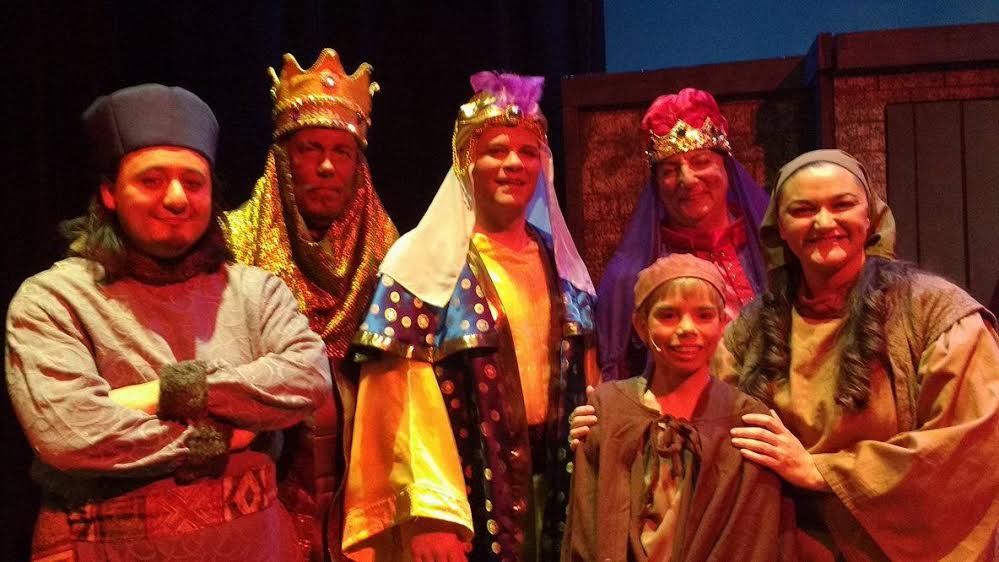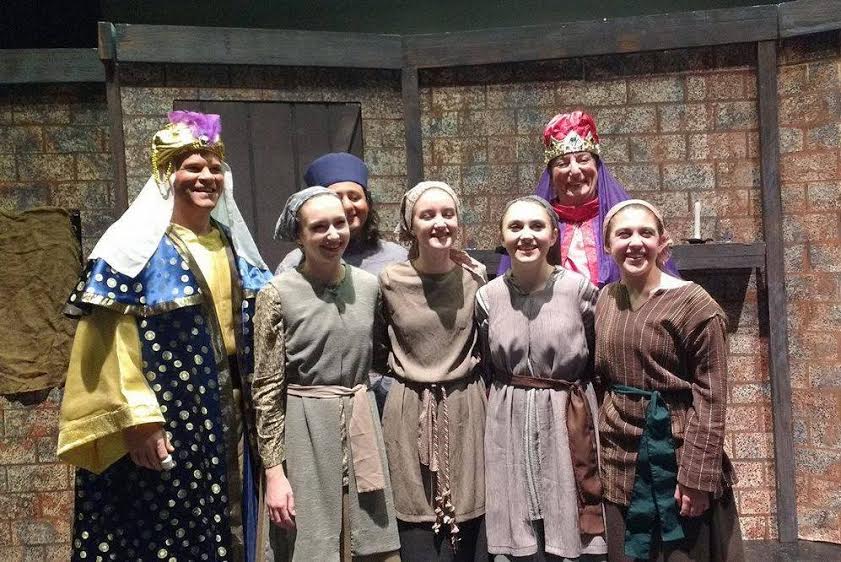Originally commissioned by NBC as the first opera for television, composer and librettist Gian Carlo Menotti’s Amahl and the Night Visitors has become an American Christmas tradition since its debut in 1951, and an annual holiday event over the past several years with OperaLancaster. This December’s presentation, directed by John Darrenkamp, features, for the first time, a full live orchestra, with newly appointed chorus master Derek Martin serving as conductor. It also marks the fourth return of the critically acclaimed soprano Kirsten Kunkle, known to Philadelphia audiences for her impressive appearances with the Philadelphia Opera Collective.

The charming one-act English-language opera, which Menotti intended to appeal to children, is set in the first century, near Bethlehem, just after the birth of the baby Jesus. It tells the story of Amahl–a poor young boy with a lame leg and a tendency to weave tall tales—who sees a star “as big as a window” in the night sky, is surprised by a visit from the three kings following it, and is miraculously healed after offering his crutch to them as a gift for the Christ child they seek. Though Amahl’s mother initially doubts him and becomes angered over what she assumes are lies, she welcomes the royal strangers to rest in her home upon seeing them, calls for the village shepherds to bring them food and entertainment, and, after being caught stealing some gold coins from one of the Magi so that she can buy food to feed her son, becomes a believer in their message of a King who has no need for earthly wealth.
As specified by Menotti (who insisted that a boy, not an adult, play the titular role), the poignant, funny, and didactic work provides an opportunity for young talents to perform on a large public stage with more seasoned singers and musicians. Here, thirteen-year-old Alex Petry captures the sweetness, innocence, and active imagination of Amahl, along with his crippled gait and sudden healing. He is insistent as he sings of the giant star he sees (in “Oh, Mother, You Should Go Out and See!”), protective as he defends her against the Page (played again this year by Moses Mariscal) who catches her with the gold (“Don’t You Dare!”), selfless in the offering of his crutch ( “Oh, No, Wait”), and awestruck when he realizes, as a result of his kindness, that his leg has been cured (“I Walk, Mother”).
Among the most comical scenes is Amahl’s fascinated interrogation of the Magi (portrayed by Justin Huie, Tom Cozzoli, and James Riggs), who, he fibs to his mother, have been asking him all the questions. He sings the prolonged query “Are You A Real King?” and has a witty exchange with the hard-of-hearing Kaspar about the parrot he has with him. “Does he talk?” asks the boy; “How would I know?” responds Huie in his smooth and full-bodied tenor voice, while showing the wide-eyed Amahl the treats he bears in “This is My Box.”
Kunkle brings her outstanding singing and acting skills to her role as the mother, registering a full range of emotions in her clear and powerful vocals, on her expressive face, and in her legible body language. She is filled with impatience towards her son (in “Amahl! Amahl!,” “Stop Bothering Me!,” and “Amahl, I Told You Not To Be A Nuisance!”), desperate in her poverty (“All That Gold”), and sincere in her decision to allow her boy to join the Magi on their journey to adore Jesus (in their poignant duet in “Do You Really Want to Go?”). She is a constant highlight of the show.
Along with the completely sung-through narrative, the opera contains an enjoyable scene in which four young dancers (Faith Nikolaus, Aliya Rajnic, Aria Rajnic, and Kaitlin Sites) perform for the kings, who have been fed by the villagers with “Olives and Quinces” (sung with gusto by the full chorus). Choreographed by Cynthia Nehr, the barefoot “Shepherds’ Dance” combines movements from Middle-Eastern folk dance and classical ballet, in keeping with the styles referenced in Menotti’s music, beautifully played by the orchestra.
Costumes by Mercedes Macarino contrast the rich colorful robes and golden crowns of the Magi with the drab modest garb of Amahl, his mother, and the shepherds, and Donna Yelley provides toned make-up to characterize Balthazar, in the production’s absence of an African-American singer to perform the role of the black king. Nels Martin’s set design employs a brown palette for the rustic house and its simple wooden furniture, and the projected image of a starry blue sky on a large screen above.

OperaLancaster’s entertaining presentation of Amahl and the Night Visitors is a holiday delight that holds appeal for all ages; it provides an important lesson in the values of belief and generosity, and a great way to introduce children to the beauty of the genre.
Running Time: Approximately 50 minutes, without an intermission.
Amahl and the Night Visitors plays through Sunday, December 11, 2016, at OperaLancaster, performing at Roschel Performing Arts Center, on the campus of Franklin & Marshall College – 628 College Avenue, in Lancaster, PA. For tickets, purchase them online.




